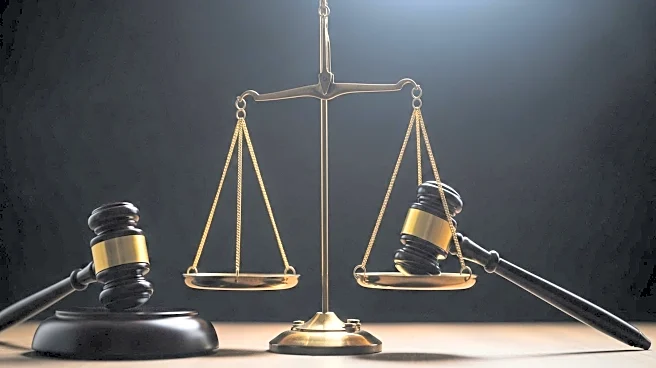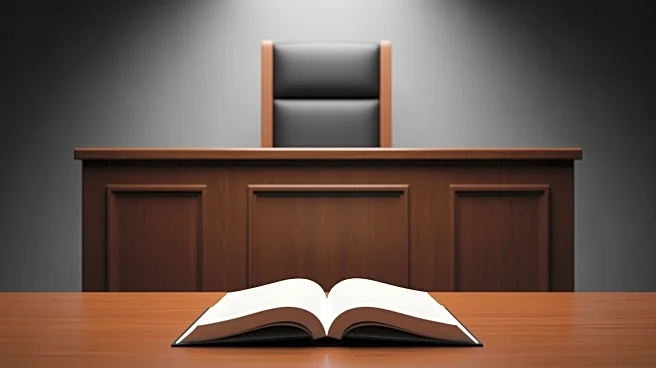What's Happening?
Former French President Nicolas Sarkozy is set to learn the specifics of his prison sentence on Monday, following his conviction for criminal conspiracy. Sarkozy was found guilty of using funds from Libya to finance his 2007 presidential campaign. The National Financial Prosecutor's office will inform Sarkozy of the prison location and date, although this information will not be made public to avoid media attention. Sarkozy, who served as president from 2007 to 2012, maintains his innocence and plans to appeal the decision. He was sentenced to five years in prison, with immediate effect, due to the severity of the offense's impact on public order. Sarkozy's incarceration is expected to occur under special conditions reserved for high-profile inmates.
Why It's Important?
The imprisonment of Nicolas Sarkozy marks a significant moment in French political history, as he becomes the first modern French president to face jail time. This development underscores the ongoing scrutiny and legal challenges faced by political figures, highlighting issues of corruption and accountability. Sarkozy's conviction may influence public perception of political integrity and could impact conservative circles where he remains influential. The case also reflects broader concerns about the use of foreign funds in political campaigns, potentially prompting discussions on campaign finance reform and international political influence.
What's Next?
Sarkozy is expected to file a release request to the appeals court once incarcerated, with judges having up to two months to process the request. An appeal trial is anticipated to occur in the spring, which could alter the course of Sarkozy's legal battles. The outcome of these proceedings may affect Sarkozy's legacy and influence within French politics. Additionally, the case may lead to increased scrutiny of campaign financing practices and potential reforms to prevent similar occurrences in the future.
Beyond the Headlines
Sarkozy's conviction raises ethical questions about the intersection of politics and foreign influence, particularly in the context of campaign financing. The case may prompt broader discussions on the ethical responsibilities of political leaders and the need for transparency in political funding. It also highlights the legal complexities involved in prosecuting high-profile figures, potentially influencing future legal approaches to political corruption cases.








